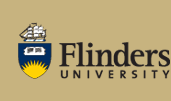
To be read in conjunction with the program of study requirements for the Bachelor of Science.
The Biodiversity and Conservation Specialisation is offered as part of The Bachelor of Science and requires three years of full-time study (or the equivalent part-time). The Specialisation is offered by the School of Biological Sciences, within the Faculty of Science and Engineering.
Specialisations have different admission requirements to other programs of study available in The Bachelor of Science. In order to undertake a Specialisation students must be admitted to The Specialisation program. The name of The Specialisation will appear on the transcript and parchment.
The minimum requirements for consideration for entry to all undergraduate courses are specified in detail in the University Entry Requirements.
There are no formal prerequisites for The Bachelor of Science (Biodiversity and Conservation), but a knowledge of Mathematics, Physics or Chemistry to Year 11 is desirable.
The program aims to provide students with a broad-based foundation in biodiversity and Conservation Biology and allied areas, together with the ability to acquire extensive subject knowledge in the discipline. It also aims to develop a range of transferable research, analytical and communication skills including the capacity to:
The program provides the foundations that will underpin ongoing professional development, preparing graduates for further studies in biodiversity and Conservation Biology or another science or non-science related discipline, or for a career in this or a related field, or in other areas where the range of skills and knowledge acquired is needed or desirable.
Graduates are expected to be able to:
To qualify for The Bachelor of Science (Biodiversity and Conservation) a student must complete 108 units, with a grade of P or NGP or better in each topic, according to the program of study detailed below.
No more than 45 units of First Year level topics may be included in the 108 units for the degree. Topics designated 'any year' or with no year level specified are regarded as First Year level topics.
Elective topics to complete 108 units may be selected from any offered within the University or, with approval from the Faculty of Science and Engineering, from outside the University, provided any course and prerequisite requirements are met.
Not all topics are necessarily available in a given year.
Students who have completed 72 units or more with a grade of P or NGP or better in each topic, according to the following rule, may exit with the Diploma of Applied Science:
Except where there is an approved double specialisation (see Bachelor of Science program of study) the same upper level (2xxx or above) topic cannot be counted twice. For example an upper level topic that is counted towards a specialisation may not also be counted towards a minor.
Specialisation - Biodiversity and Conservation - Year 1 topics
36 units comprising:
BIOD2701 Biodiversity and Conservation (4.5 units)
BIOL2701 Experimental Design and Statistics for Biology (4.5 units)
BIOL2702 Genetics, Evolution and Biodiversity (4.5 units)
BIOL2711 Ecology (4.5 units)
BIOL2712 Animal Diversity (4.5 units)
GEOG2700 Geographical Information Systems (4.5 units)
Plus 9 units of elective topics*^ from across the University where entry requirements are met.
36 units comprising:
BIOD3701 Human Impacts and Biodiversity (4.5 units)
BIOL3701 Conservation Biology and Restoration Ecology (4.5 units)
BIOL3702 Marine and Freshwater Biology (4.5 units)
BIOL3711 Plant and Algal Diversity (4.5 units)
BIOL3712 Integrative Physiology of Animals and Plants (4.5 units)
BIOL3722 Conservation and Ecological Genetics (4.5 units)
Plus 9 units of elective topics*^ from across the University where entry requirements are met.
#These topics are cognate studies topics which must be taken to complete The Specialisation.
*Students may choose to undertake a Bachelor of Science Minor as part of the elective component of their degree subject to meeting course/topic requirements.
**Students who do not wish to undertake a minor in computer science, a minor in Information Systems or upper level computing topics as electives can choose to undertake COMP1301 Information Systems in Business instead of COMP1102 Computer Programming 1.
While students are able to select elective units from anywhere across the University, these are Recommended Electives.
BIOL1112 Biology and Society (4.5 units)
BIOL1301 Introduction to Marine Biology (4.5 units)
BIOL1711 Introduction to Animal Behaviour (4.5 units)
BIOL2721 Foundations of Animal Behaviour (4.5 units)
BIOL2722 Disease and Immunology (4.5 units)
BIOL2742 Marine Ecology (4.5 units)
BIOL3700 Biology Research Project (4.5 units)
BIOL3703 Vetebrate Palaeontology (4.5 units)
BIOL3721 Behavioural Ecology and Sociobiology (4.5 units)
ENVS1701 Environmental Studies (4.5 units)
ENVS1702 Environment, Economy and Culture (4.5 units)
ENVS2721 Environmental Decision Making Tools (4.5 units)
ENVS3711 Coastal Studies (4.5 units)
ENVS3732 Environmental Impact Assessment (4.5 units)
GEOG2701 Introduction to Remote Sensing (4.5 units)
GEOG2702 Image Analysis in Remote Sensing (4.5 units)
GEOG2711 Australian Environmental Change (4.5 units)
GEOG3731 GIS Modelling (4.5 units)
Admission to an honours program may be offered to a student who meets certain academic criteria and subject to the school/department being able to provide appropriate resources and staff to supervise the program of study. Refer to Bachelor of Science (Biodiversity and Conservation) (Honours).
The Bachelor of Science (Biodiversity and Conservation) may also be studied in a combined degrees program with the:
CRICOS Provider: 00114A | Updated: 25 Oct, 2011